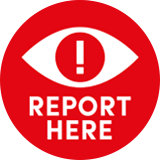Don’t Look Away website
Site-header

Deze website is medegefinancierd door de Europese Unie.
Back To Top
Ben je niet helemaal zeker van je zaak en wil je de situatie eerst voorleggen aan een medewerker van het Meldpunt?
Neem dan gerust contact op en bel tijdens kantooruren met: 071-516 09 80 of mail naar: info@dontlookaway.nl
